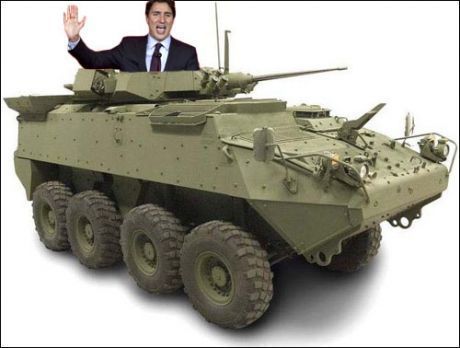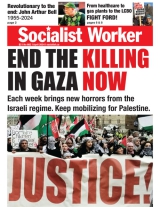Features
You are here
Trudeau's militarism won't help Kurdistan

December 7, 2017
The Canadian military intervention against ISIS was portrayed as another example of bringing stability to the world. It was clothed in the rhetoric of peacekeeping and sold to a public that was, justifiably, disgusted by ISIS.
But once again, if we scratch the surface we find an entirely different set of motivations for the government. Marx famously said that the state is the executive committee of the bourgeoisie. One of the jobs of the state is to make sure that domestic corporations get to pillage overseas resources. In Iraq the government of Canada is acting the part.
Kurdistan
In 2004, Calgary based Western Oilsands was the first to drill in Kurdish territory. Simon Hatfield, an executive with the company at the time could not contain his glee. He said that the oil was literally seeping out of the ground. “Every single reservoir we’ve drilled has had oil or gas or both in it,” he said.
Newspapers in Canada talked of the great transformation of the oil and gas fields in Kurdish territory. They had good reason to be excited. The area had been underdeveloped for decades and the war started by the US-led invasion in 2003 was changing that.
Fast forward to 2014 and the rise of ISIS. By this point Canadian companies had invested more than $4 billion in Kurdish controlled oil and gas fields. According to the Kurdish regional government the following companies are currently drilling or exporting from the region: Groundstar Resources, Niko Resources, Shamaran Petroleum, Talisman Energy, Vast Exploration, WesternZagros.
It’s not just Kurdish territory that is enticing for Canadian business. In 2016, Bruno Saccomani, the Canadian ambassador to Jordan and Iraq and Steven Harper’s former security chief, told the Financial Post that there was more than $1 trillion in business opportunities associated with the rebuilding of Iraq. He called for Canadian banks and corporations to head to the country to secure this windfall and to help facilitate expansion of Canadian businesses in engineering, health, education and agriculture.
The fight against ISIS
All of this must be part of our reckoning with what Canada’s role and justifications are for the intervention against ISIS. Our state had more than humanitarian reasons for engaging in this fight.
When Justin Trudeau was elected he quit the bombing campaign that had been started under Stephen Harper but he was not about to disengage from the country.
Canada proceeded to send special forces to both Kurdish territory and to Iraq to train and supply the groups fighting ISIS. As we know, once the main ISIS strongholds were taken, Iraqi forces and Kurdish forces started fighting each other.
According to Col. Jay Janzen, a senior Canadian military spokesperson “It wouldn’t be fair to say we were caught by surprise,” by the fighting between the two. It beggars belief that Canadian military officials would not know that this would be the likely outcome. They would have to know literally nothing about the history of the quest for Kurdish autonomy to have not seen this coming.
But this is the pattern in the relationship between the Kurds and the imperial powers. Once again, the Kurdish people were used as pawns in a great game of control. The Kurds have been promised autonomy in exchange for their fighters for more than a century. Whether is was the British in the years after the WWI or the Americans before the invasion in 2003, they have always been used to support western military interventions only to have their own ambitions betrayed by their alleged allies.
And this fight is nowhere near over. The Turkish government, which always opposed western support for the Kurdish people is being wooed by both the west (it is a NATO member) and by Russia, intent on its own imperial ambitions.
The major regional powers, specifically Israel, Iran and Saudi Arabia also continue to jockey for position. The recent attempts by Mohammed Bin Salman to destabilize Lebanon by calling for the resignation of Lebanese Prime Minister Saad Hariri, thus setting up a power struggle in that country, is a prime example. The ongoing killing in Yemen shows how brutal another conflict could be.
Instability
The crisis for the western imperialists that resulted from the failed attempt to gain control of Iraq in 2003 has created a new and multipolar scramble for control. The defeat of ISIS in certain parts of Iraq and Syria (they are still operating in other parts of the world from Afghanistan to Egypt) has not stopped this drive - it has simply changed the calculations.
So what will the Canadian state do when it is confronted with a new outbreak of war near their protected assets? It appears that the strategy is to hedge its bets by arming all sides in the regional struggle: sending military hardware to the Saudis after having done so already for the Iranian trained Iraqi forces and the Kurdish fighters. That is certainly a good way for Canadian arms manufacturers to keep making money but it will certainly not bring peace to the long suffering people in the Middle East.
Section:
Topics:










